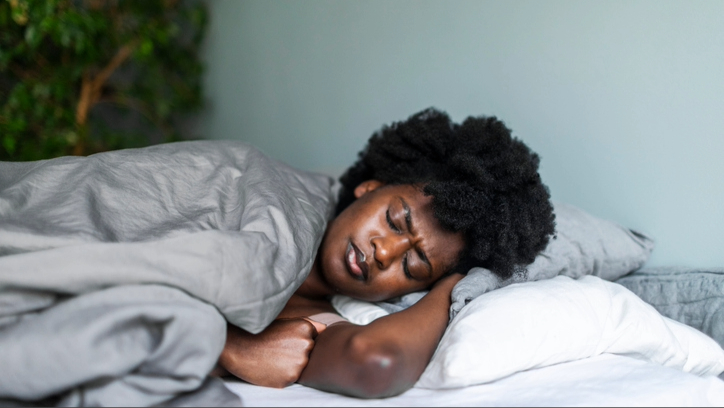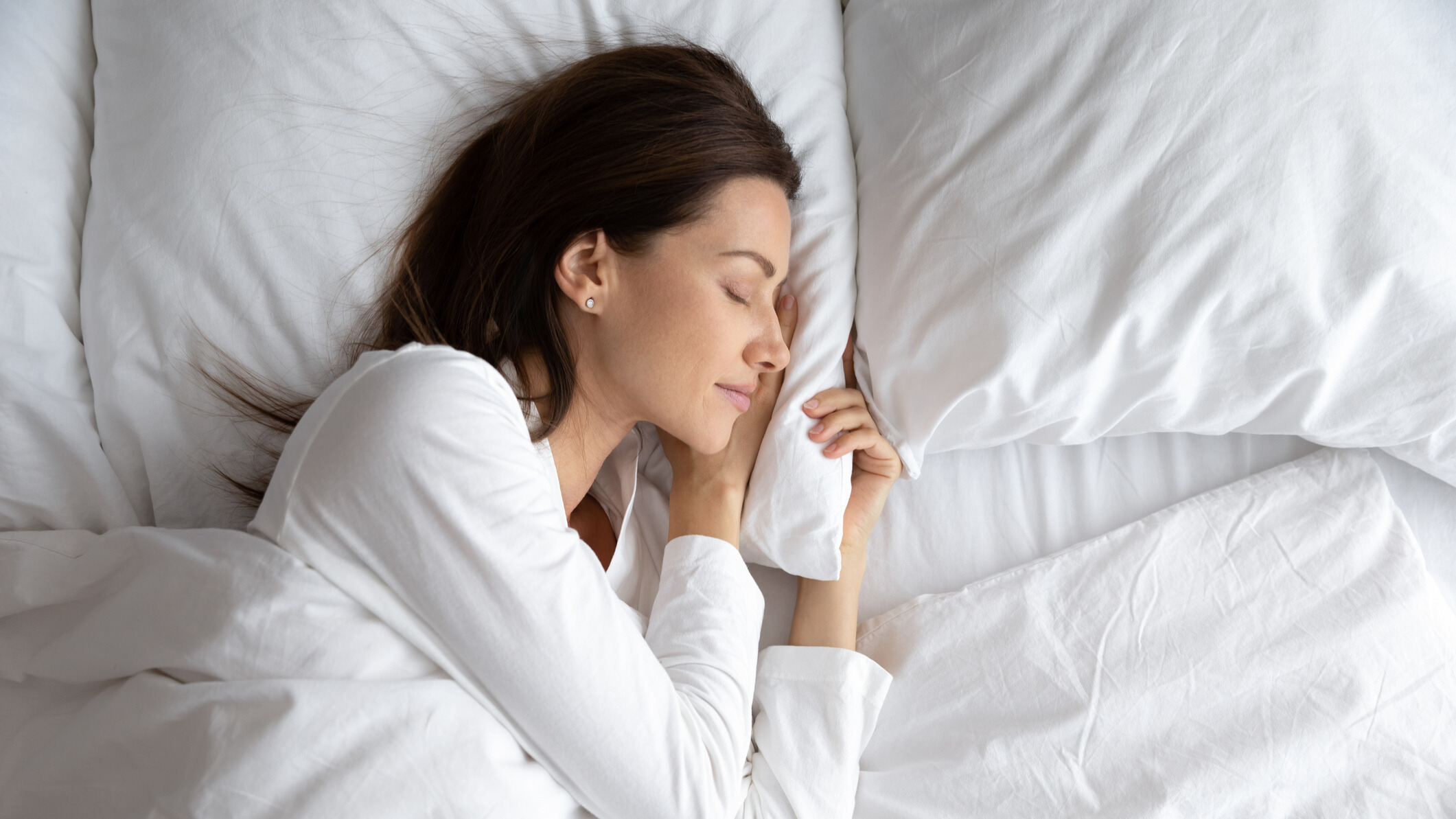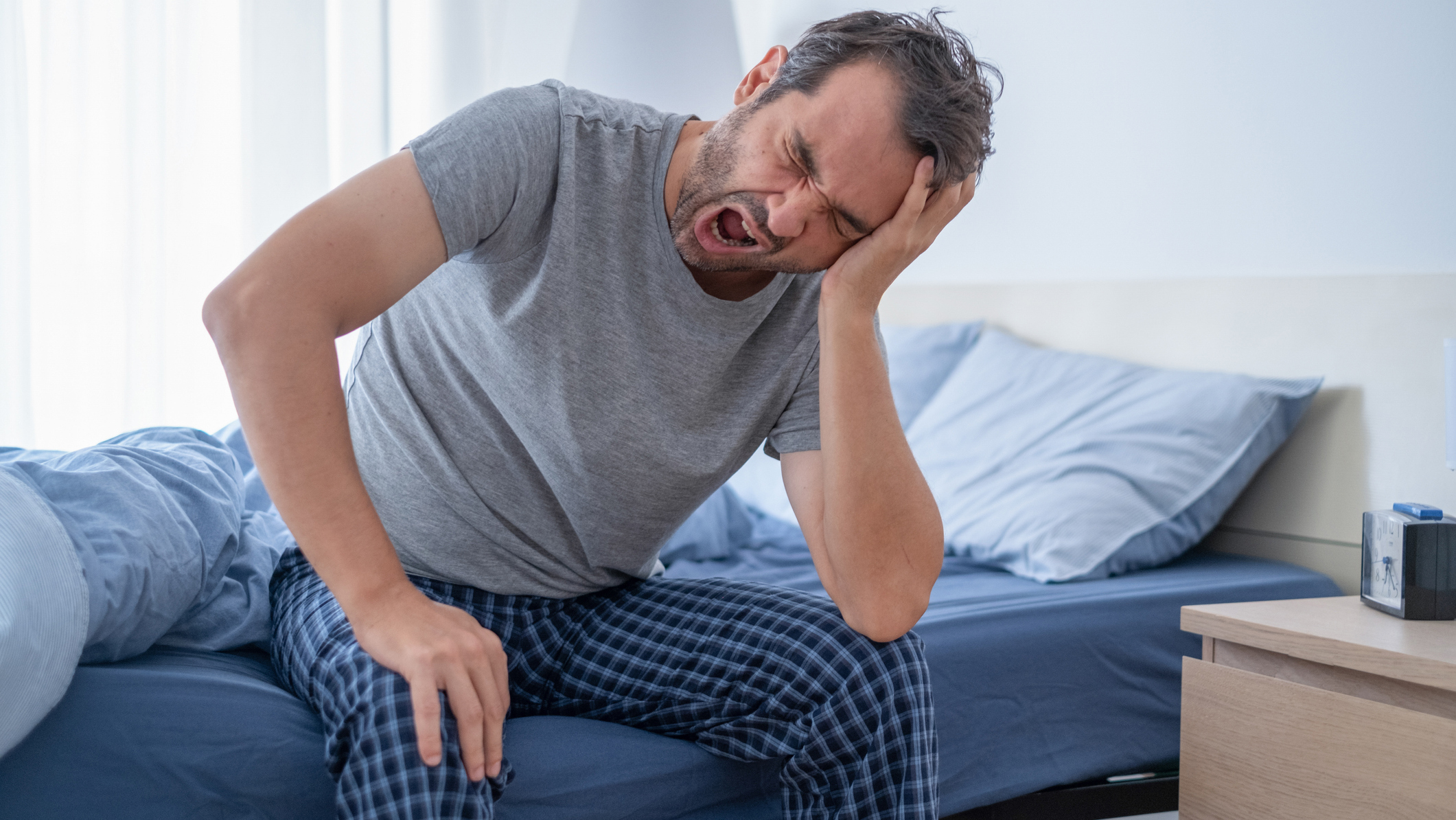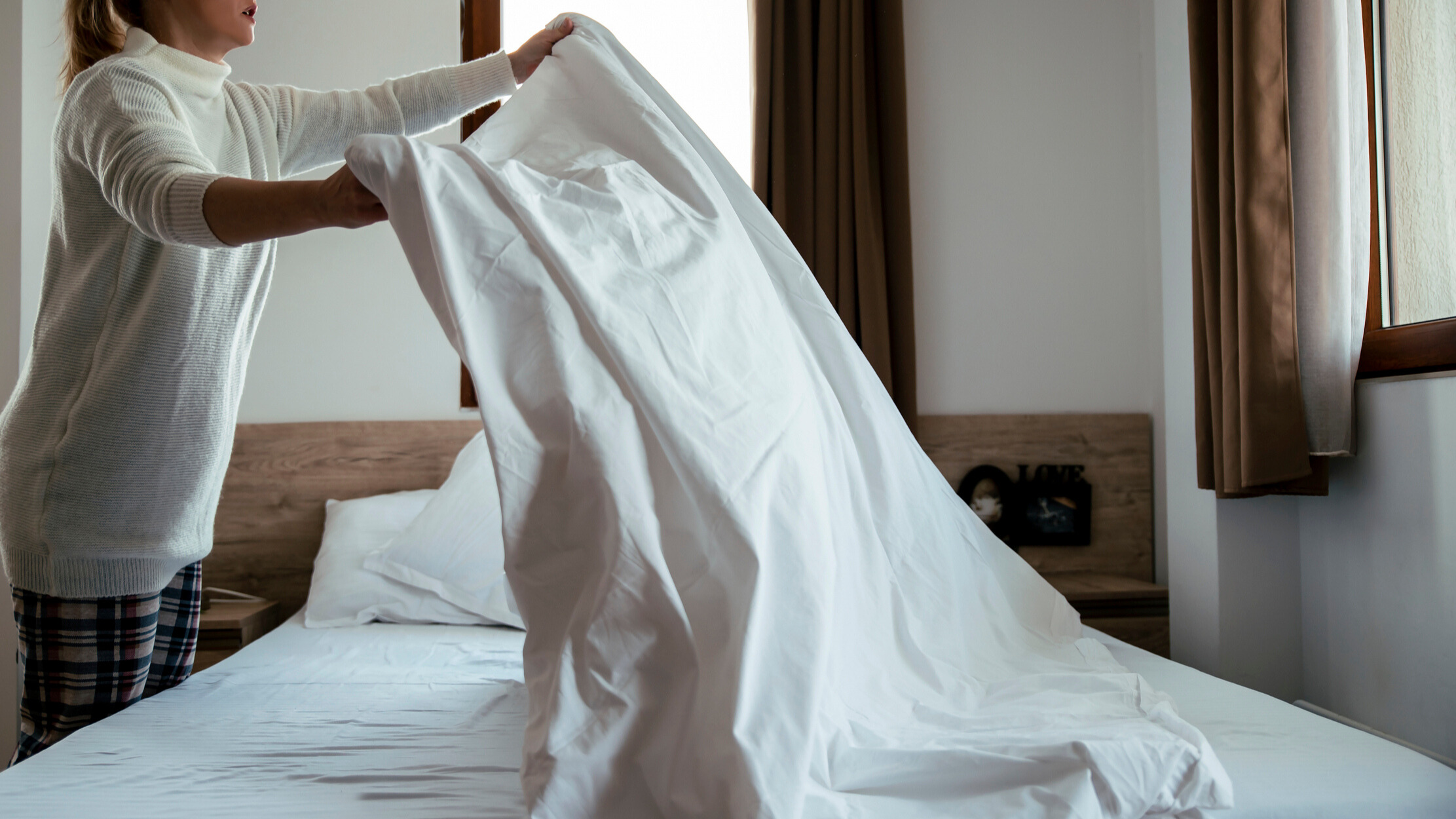
As the summer heat turns my bedroom into a sauna, I spend the nights tossing and turning, desperately trying to find the position that feels coolest.
Little had I realized, though, that this constant movement is increasing my temperature and there’s only one sleeping position that will help lower it.
So, I've asked a sleep expert what the best position is for staying cool at night during a heatwave, as well as picking up his top tips to get quality sleep in summer. We’ll also dig deeper into the effect of rising temperatures on our sleep quality.
What is the best position to sleep in during a heatwave?
“Side sleeping is often better in hot weather because it helps your body stay cooler,” says Dr. William Lu, Medical Director and Sleep Expert at Dreem Health.
“Unlike back or stomach sleeping, side sleeping reduces the amount of your body in contact with the mattress, allowing more airflow and less heat buildup. It also exposes more of your body to the air, helping heat escape more easily.”

This airflow is important for helping sweat to evaporate, a key process that helps lower our core body temperature.
Dr. Lu also shares an interesting benefit of side sleeping. “This position can improve breathing,” he says, “which also supports better temperature regulation.”
Rather than allowing your mouth to drop open when you’re sleeping on your back, and subsequently snoring, breathing through your nose on your side ensures your respiratory system isn’t under undue stress.
Can the wrong sleeping position make you hotter?
“Yes, certain sleeping positions can make you feel hotter, including sleeping on your back or stomach,” says Dr. Lu.
But why is this? “These positions increase the amount of your body in contact with the mattress, which traps more heat and limits airflow,” he explains.

“Stomach sleeping can also restrict airflow around your chest and face, making it feel stuffy.”
If you want to give side sleeping a go but it’s not your natural position, you can try a cooling side sleeper body pillow. These take the pressure off your back and knees, and align the spine so side sleeping feels more comfortable.
Why is it difficult to sleep in the heat?
It’s no surprise that we’re struggling this summer, with temperatures reaching new highs around the world. But what does this do to our sleep?
“When it's too warm, your core temperature can remain elevated, delaying the onset of sleep and reducing deep, restorative stages like slow-wave and REM sleep,” Dr. Lu says.
These stages of sleep are essential for waking up and feeling mentally and physically well rested.

“You may also wake up more frequently throughout the night, leading to lighter, more fragmented sleep,” he warns. “This can leave you feeling groggy, less alert, and less refreshed the next day.”
Fragmented sleep can also lead to disruptions in the REM stage of sleep, leading to vivid dreams and nightmares.
3 top tips for sleeping in the heat
So, how can we prevent the heat from interrupting our sleep? Dr. Lu has shared some of his top tips.
1. Caveman method
Sleeping like a caveman doesn’t sound that appealing, but it actually refers to a very simple trick that is second nature to many who live in hot climates.
“Keep your bedroom as cool as possible during the day by blocking out sunlight or any excess heat,” Dr. Lu advises.
This means keeping your curtains, blinds, windows and doors shut throughout the day. This stops heat from entering your home and getting trapped, leading to a cooler bedroom, more conducive for getting quality sleep.

2. Stay hydrated
Dr. Lu’s top tip? “Keep hydrated during the day!” he says.
Hydration is essential for our bodies to be able to properly regulate our temperature and sweat enough to cool us down.
However, this comes with a warning. “Taper off drinking a lot of water about two hours before bedtime to avoid bathroom breaks at night,” Dr Lu advises.
3. Upgrade your bedding

Something that has helped me maintain my sleep no matter how high the temperatures rise is investing in cooling bedding and pajamas made with quality, breathable materials .
“Swap your bedding for something lightweight and breathable, like cotton,” says Dr. Lu. And it’s not just cotton that can help.
Consider opting for moisture-wicking materials like bamboo and wool. By absorbing moisture from your body, these can help you stay cool and dry throughout the night.







